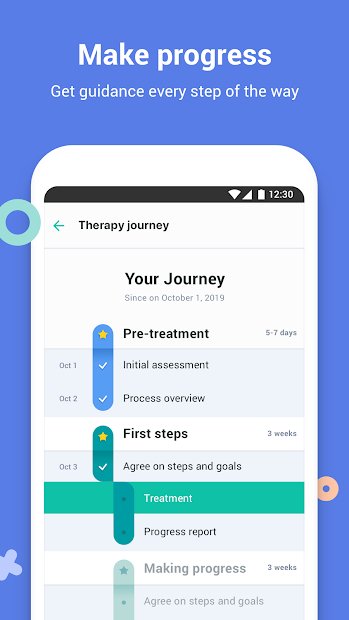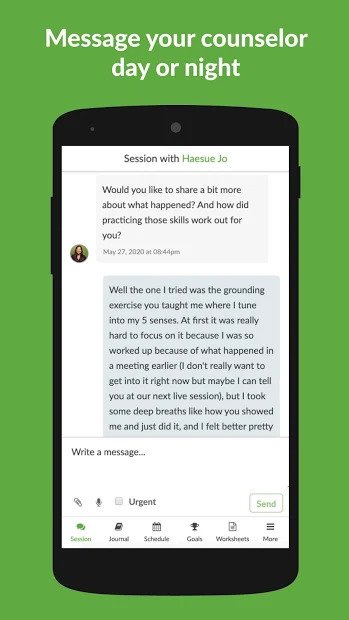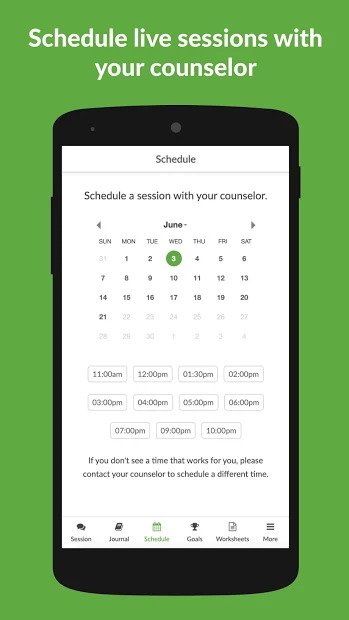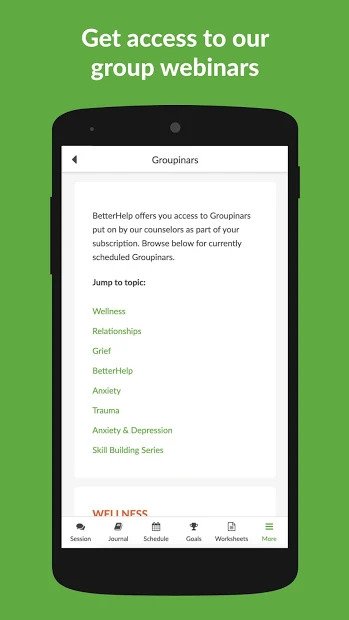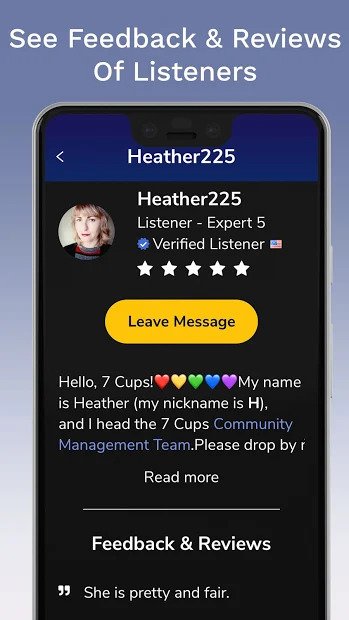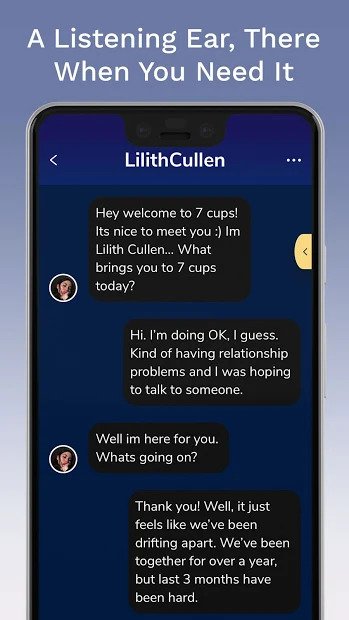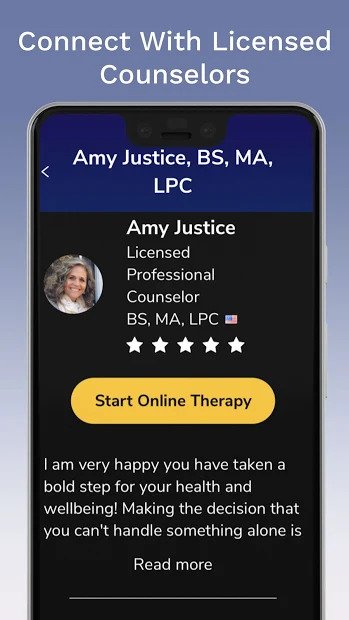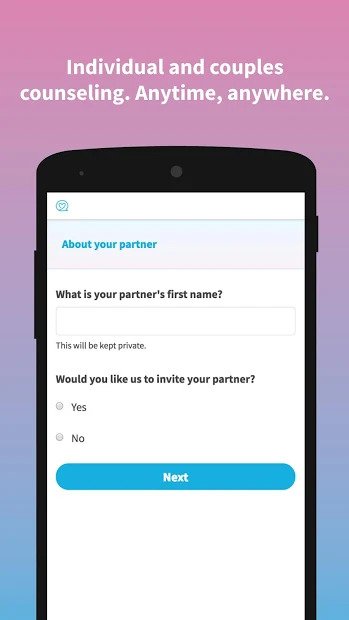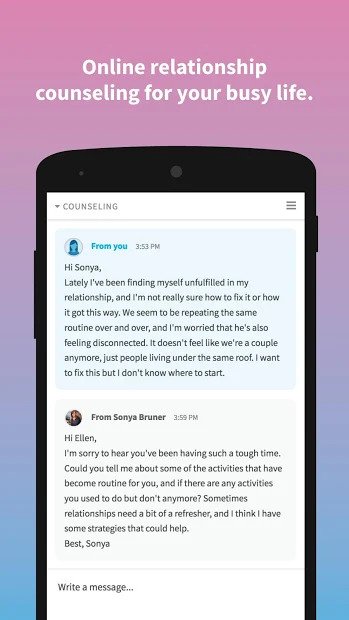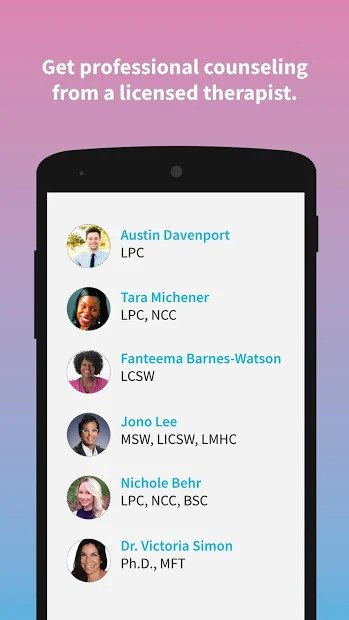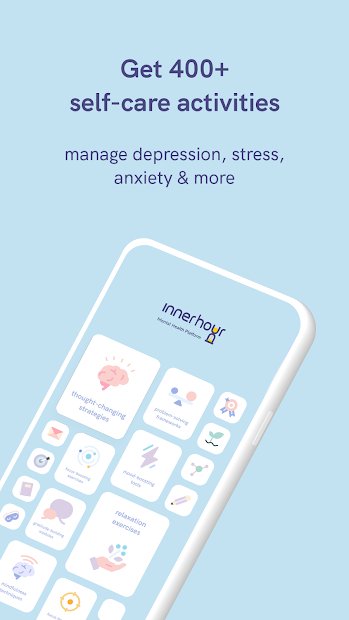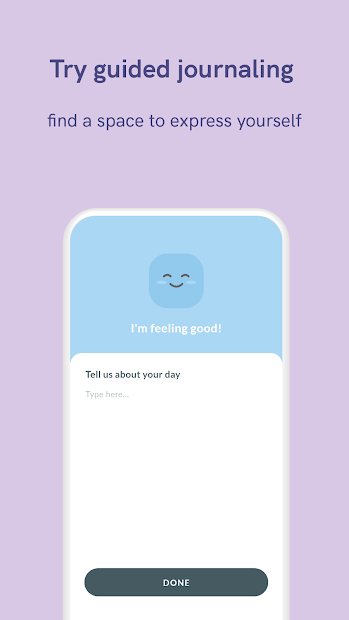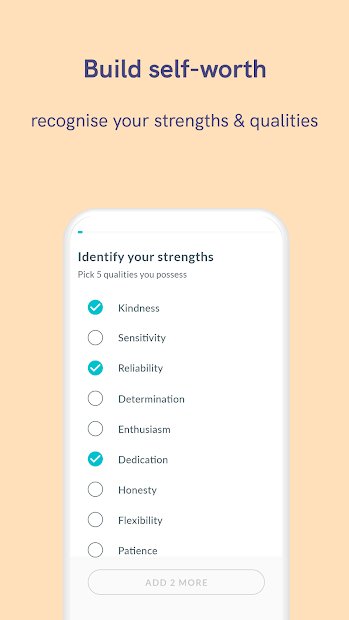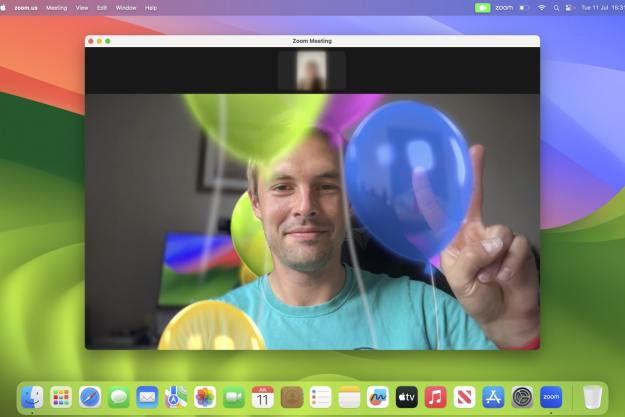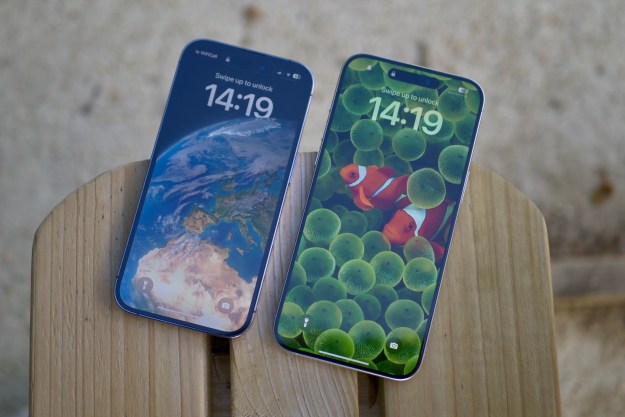If you’re struggling with anxiety, depression, or any other issues, talking to friends and family is one of the best things you can do — but if you need a little more support, what happens if you can’t find a therapist near you, or get to one? Over the past year, mental health issues have affected more people across the U.S. than ever before. According to a survey by consumer listening app Listeners on Call, over half (58%) of respondents reported the pandemic has increased their feelings of loneliness, sorrow, and struggle, with 48% of those surveyed saying that they never or only sometimes feel supported in their professional and personal lives.
There are plenty of therapy apps out there where you can get the help you need, whether that’s over the phone, via video chat, or by text. Whatever you’re going through, from unemployment to a relationship breakup, low self-esteem to anxiety and depression, therapy apps can help you get back on your feet and teach you valuable coping tips and tools to make life seem a little brighter. We’ve picked some of the best therapy apps available for Android and iOS that you can turn to if you’re looking for therapy online. Some offer online appointments with licensed therapists while others provide valuable self-help tools created by psychologists and psychiatrists.
If you’re looking for more ways to boost your health and happiness, we’ve rounded up some of the best wellness apps too.
Are therapy apps safe?
Before we get started with our roundup of the best apps, a note on safety. When choosing an app for therapy, make sure that it is compliant with the Health Insurance Portability and Accountability Act (HIPAA) — and also check out its privacy standards and whether or not it offers encryption. It’s also a good idea to check that the app screens therapists’ credentials and licensing, plus check out the credentials of any therapists you are considering working with. Prices will vary depending on the app and how you choose to communicate with your therapist of choice, but you’ll usually pay less than you would for in-person therapy. When using peer apps like 7 Cups, it’s best not to reveal any personal identifying information like your full name or where you live, unless you’re talking with a licensed therapist.
Talkspace Counseling & Therapy
Talkspace is one of the best-known online therapy apps, so it’s a great place to start if you’re new to the idea of therapy online. It’s a subscription service where you can sign up for one of several plans starting from around $65 per week — billed monthly — depending on the type of therapy you prefer, whether that’s video chat, text, phone, or a combination. You might find you’re able to get the service for free through your employer as an employee benefit or through your health insurer.
The app is for use by anybody age 13 and up looking for a therapist, and unlike some other apps, which match you to a therapist based on data you provide, here the matching is done by a real person. Just answer a few questions about what you’re looking for and provide some personal information and you’ll be offered several therapists that match your requirements. You can then choose who you’d like to work with — but you can switch to another therapist at any time. As well as individual therapy, the app offers therapy for couples and teens aged 13 to 17 too, and all plans include unlimited messaging. So if you have a question or observation you’d like to speak to your therapist about, you can message them at any time and they’ll get back to you within a fixed period.
TalkSpace has thousands of licensed therapists to choose from, all vetted and accredited to NCQA standards and licensed in the state in which they practice. All therapists also have at least three years’ direct clinical experience. There’s no need to worry about privacy either, as the app uses banking grade encryption and external auditing in compliance with the Health Insurance Portability and Accountability Act (HIPAA), so you know your personal information is safe.
It’s easy to cancel your subscription at any time or adjust the frequency of your sessions, and the app also offers a selection of mindfulness exercises and tips for well-being, as well as a handy progress tracker so you can see how you’re doing.
BetterHelp
Where can you find more than 10,000 trained, experienced, and vetted counselors waiting to help you? BetterHelp promises just this, and they’ll match you with a therapist based on your answers to a short questionnaire. You can sign up for the app anonymously, but you’ll need to provide your contact information to start therapy. Choose from live video, text, live text chat, or phone sessions — or a combination to suit your needs.
BetterHelp’s therapists can help with issues ranging from depression to social anxiety and more — as well as providing therapy for teens and couples. The app works on a subscription service and costs from $60 to $90 per week depending on the therapist you choose, your location, preferences, and the frequency of your sessions.
When you’re matched with a therapist, you get your own secure “room,” which you can access from any internet-connected device. There’s the option to “Shred” and delete any messages you’ve sent from your account, and your privacy is protected by banking grade 256-bit encryption. All BetterHelp therapists have a master’s or doctorate degree in their respective field and are qualified and certified by their state professional board, and they must also have at least three years and 2,000 hours of experience. The app only accepts around 15% of therapists who apply to the platform, and you can view the licensing information for all therapists, should you want to carry out your own checks.
The only downside? You won’t be able to get the service for free through your employer or insurance company — although that’s good news if you’re concerned about privacy — and therapists can’t diagnose or prescribe through the app.
7 Cups
7 Cups is a bit different from some of the other apps on our list as the main focus of the app is active listening. Active listeners are trained volunteers who can listen and provide advice on a range of issues — but they’re not licensed therapists. There are more than 450,000 trained listeners and licensed therapists on the app, providing support across 189 countries and in 140 languages, and when you sign up you can see each listener’s profile with their reviews as well as the categories they specialize in, from anxiety and panic attacks to depression, eating disorders, and more.
Once you’ve chosen your listener, you can connect instantly via chat, and it’s free. It’s up to you whether you want to stick with the same listener each time you use the app or try someone new each time. You can remain 100% anonymous too if you like. There’s also a subscription service that costs $13 per month or $95 for a year’s access, as well as chat rooms, community forums, a free wellness test, mood-boosting exercises, and 300 free mindfulness exercises.
There’s not much information provided on encryption and security, but 7 Cups promises their “advanced security technology” protects your privacy. Should you experience any issues with your listener, there’s the option to block them or “ban” them by reporting them.
7 Cups also offers access to experienced, licensed therapists and is HIPAA compliant. To sign up for therapy costs $150 a month, with no hidden fees. There are two ways to get matched with a therapist: Either choose your own from the online directory or speak to chatbot Sophia, who will ask you what issues you’re seeking support for and find you the perfect match. Once you’re matched, you get access to a private chat room for you and your therapist, and you can send messages 24/7. Your therapist will reply once or twice a day from Monday through Friday — the app is designed for continuous therapeutic work throughout the week, rather than one session at a time.
ReGain
As well as apps offering therapy for individuals, apps like ReGain exist to provide couples therapy — although you can also sign up for counseling just for yourself. ReGain lets you share an account with your sweetie — if that’s what you decide — and gives you 24/7 access to a private room, from any internet-connected device, where you can chat to your therapist. As well as live sessions where you interact with your therapist, you can ask questions or discuss issues by leaving messages for your therapist to respond to later. The idea is that this makes it much easier for busy professionals to commit to ReGain compared to face-to-face therapy, as you can log on in your own time to see your therapist’s responses and advice.
All therapists on the app are licensed, trained, accredited, and highly experienced in offering relationship support, whether you’re looking to talk to somebody about your finances, children, problems with infidelity, or something else entirely. ReGain’s counselors all hold a master’s or doctorate degree and have at least three years and 1,000 hours of hands-on experience, as well as being qualified and certified by their state professional licensing board, so you know you’re in safe hands.
When you first access the app you’ll be asked to register — and at this point you can choose a nickname, to remain anonymous. You’ll be matched with a therapist after filling out a short survey, at which point you’ll need to provide them with your contact information, for safety purposes. ReGain’s prices are affordable, with costs ranging from $60 to $90 per week (billed monthly) depending on your location, preferences, and therapist. You can send unlimited messages and have as many sessions as you want. Some people prefer multiple short interactions with their therapist throughout the week, while for others, one long, in-depth session is more useful.
You’ll get the option to add your partner to your account at signup, but if you decide to go the solo therapy route initially, you can always add them later. It’s worth noting that although ReGain can help your relationship, it’s not suitable in all cases — and they make it clear in their FAQs that if you are experiencing any kind of physical abuse in your relationship, you would be best seeking in-person help.
InnerHour Self Care
The InnerHour Self Care app is all about self-care and finding new ways and tools to cope with whatever’s troubling you. Although you can use the app to get in touch with a licensed therapist, the app mostly focuses on tools, courses, and resources to improve your mental health and wellbeing. Created by psychologists and psychiatrists, it uses insights from therapy combined with the latest science in mindfulness, positive psychology, and cognitive behavioral therapy (CBT) to help you with any issues you may be having.
Whether you’re looking to banish anxiety, overcome depression, sleep better, or just improve your overall mental health and wellbeing, this app can help. There are more than 400 therapy-based self-help tools and six self-care courses on topics ranging from depression and anxiety to stress and anger. Sign up for free and you’ll gain access to a personalized four-week plan — and you can sign up anonymously if you wish. Your plan includes self-care activities like guided journal exercises and positive affirmations, resources like articles and tips, mood tracking that helps you check in with yourself and build self-awareness of how you’re feeling, and goal tracking to help you become your very best self.
If you’re stressing out right now and looking for immediate help, chat to Allie, the intelligent chatbot, who identifies your current mental health difficulty and recommends activities to help you instantly relax. There’s also a range of additional self-help courses you can access for issues like social anxiety or loneliness.
While access to most of the app’s features like the mood tracker, resources, and goal tracking is free, you can sign up for a monthly plan from $5 a month or $12 a quarter to access additional features. If you want to talk to a professional, you can schedule an appointment with a licensed therapist starting at $35 per session.
What’s Up?
Although it’s technically more of a resource for self-care than a therapy app, we felt What’s Up deserved a place in our list, as it’s a great little app if you’re feeling depressed, anxious, or overwhelmed. The app uses cognitive behavioral therapy (CBT) and acceptance commitment therapy (ACT) principles to help you cope with feelings of anger, stress, anxiety, depression — and more.
There are loads of helpful tools, including a Personal section with a diary where you can record your thoughts and feelings and a positive and negative habit tracker and an Information section packed with helpful information and statistics on everything from depression to self-esteem. The Help Right Now section includes the fun Get Grounded game, helping you to stay grounded when you’re feeling overwhelmed, and Breathing Control, three simple breathing techniques that will instantly calm you down. There are also positive quotes and affirmations, metaphors to help you cope with negative thinking, and forums where you can chat with others who are feeling the same way.
You can sync data between your devices and add a passcode to the app if you’re worried about keeping your data private. If you’re someone who frequently experiences stress, anxiety, or other mental health issues, this is an excellent app to keep handy on your phone for whenever you might need it.
Editors' Recommendations
- An Apple insider just revealed how iOS 18’s AI features will work
- The 10 best photo editing apps for Android and iOS in 2024
- This could be our first look at iOS 18’s huge redesign
- The best iPhone keyboard apps in 2024: our 12 favorites
- Your iPhone just got a new iOS update, and you should download it right now



